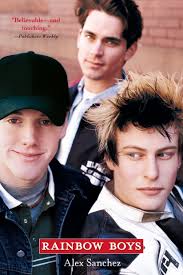Kenan Metzger and Wendy Kelleher’s call for “more young adult literature by and for indigenous peoples” in their article in the ALAN Review on the current absence of those voices for young readers. I was able to interpret this article from a few different perspectives; namely from the ideas of censorship in this course, and also from my knowledge of young adult literature from my adolescent education classes. After exploring the damage that stereotyped portrayals of Native Americans exhibits on both Native and non-Native students, the authors argue that publishers continue to limit the amount of culturally accurate voices in YA literature as they “are looking for what they are familiar with – which is stereotyped, romantic, non- Indian view of Indians. ” Belinda Louie’s writing advances this concern as she characterizes publishers as “deeply committed to profit making” and thus less likely to publish new authors’ work along with work that fails to cater to the dominant market. Authors writing honestly about Native American life unfortunately fit both of those categories; they are new voices from an unexpected source, and the stories they tell do not fit the dominant market’s expectation of what Indian life is like. Indeed, this is censorship. Stories that have the opportunity to benefit children, building confidence in their own image through fiction that replicates and expands upon their world, are swapped for appropriated, identity-conflicting works that fit the worldview of parents and by extension fill the wallets of publishers. “Relatability” is certainly an overused favorite aspect of a work that students identify, and one we hope they can come to look beyond or recognize in less obvious sources, but as Cynthia Smith contends, “It is crucial for young people to have a choice of books… with characters that reflect them… This is not only the case with regard to race ethnicity of tribal affiliation, but also of religion, sexual orientation, region, and so forth.”

Looking beyond the dearth of representation of Native issues, Liz and I continue to research the challenge to Rainbow Boys by Alex Sanchez which offers an honest portrayal of life as a gay teenager. In this instance, many parents (and publishers) do not want modern portrayals that challenge the traditional dominant view of homosexuality as an outcast behavior. What they fail to see, or intentionally neglect, is the world created in Rainbow Boys or other novels of similar background can encourage identity building for LGBT teenagers while fostering understanding and empathy towards gay people among straight teens. And while the opportunity to read stories that fairly portray marginalized groups outside of the curriculum is a great start, placing those stories in the English (or History) curriculum gives students access to educators that can bring about more fulfilling and contextualized comprehension of these works. This collection of authors on the topics of YA literature and censorship continue to provide background for and shape my interest in our case study and the issue of accurate representation in general.
